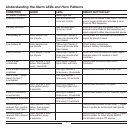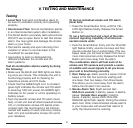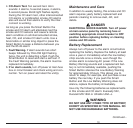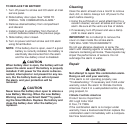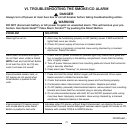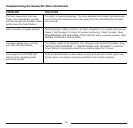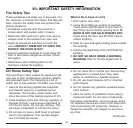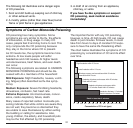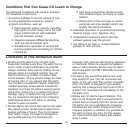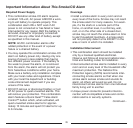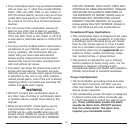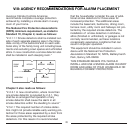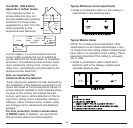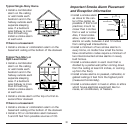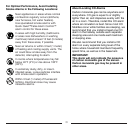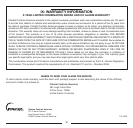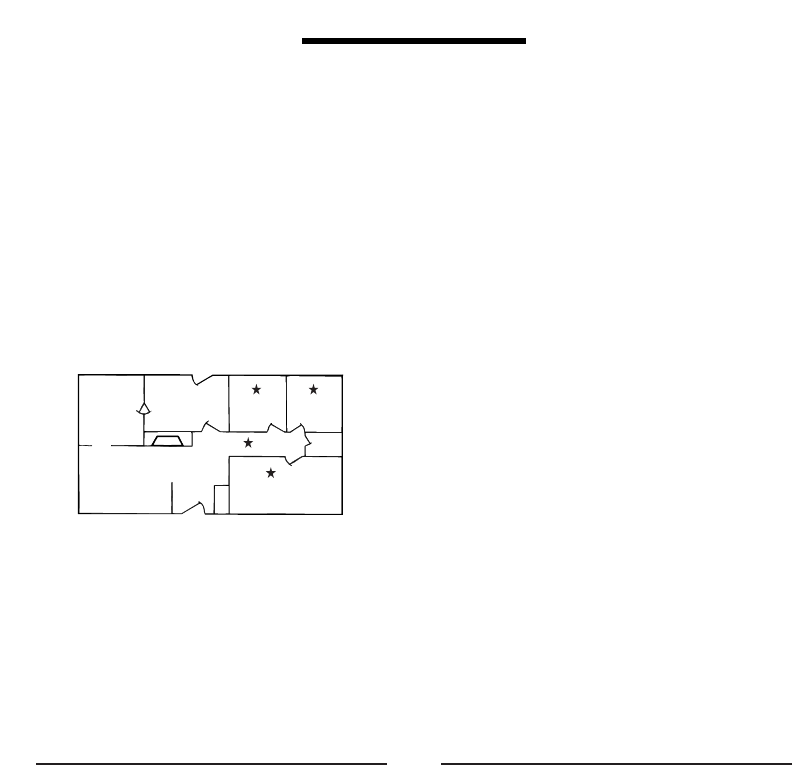
Invensys Climate Controls Americas
recommends complete coverage protection
achieved by installing a smoke alarm in every
room of your home.
The National Fire Protection Association’s
(NFPA) minimum requirement, as stated in
Standard 72, Chapter 2, reads as follows:
“2-2.1.1.1 Smoke detectors shall be installed out-
side of each separate sleeping area in the imme-
diate vicinity of the bedrooms and on each addi-
tional story of the family living unit including base-
ments and excluding crawl spaces and unfinished
attics. In new construction a smoke detector also
shall be installed in each sleeping room.”
Chapter 2 also reads as follows:
“2-2.2.1 In new construction, where more than
one smoke detector is required by 2-2.1, they
shall be so arranged that operation of any
smoke detector shall cause the alarm in all
smoke detectors within the dwelling to sound.”
“2.5.2.1 The required number of smoke detec-
tors might not provide reliable early warning pro-
tection for those areas separated by a door from
the areas protected by the required smoke
detectors. For this reason it is recommended
that the householder consider the use of addi-
tional smoke detectors for those areas for
increased protection. The additional areas
include the basement, bedrooms, dining room,
furnace room, utility room and hallways not pro-
tected by the required smoke detectors. The
installation of smoke detectors in kitchens,
attics (finished or unfinished), or garages is not
normally recommended, as these locations
occasionally experience conditions that can
result in improper operation.”
This equipment should be installed in accor-
dance with the National Fire Protection
Association’s Standard 72, NFPA, Batterymarch
Park, Quincy, MA 02269.
THIS STANDARD MEANS YOU SHOULD
INSTALL AND USE A SMOKE ALARM IN EVERY
ROOM AND AREA OF YOUR HOUSEHOLD OR
BUILDING FOR BEST PROTECTION.
28
KITCHEN
DINING
ROOM
BEDROOM
BEDROOM
BEDROOM
LIVING ROOM
VIII: AGENCY RECOMMENDATIONS FOR ALARM PLACEMENT



